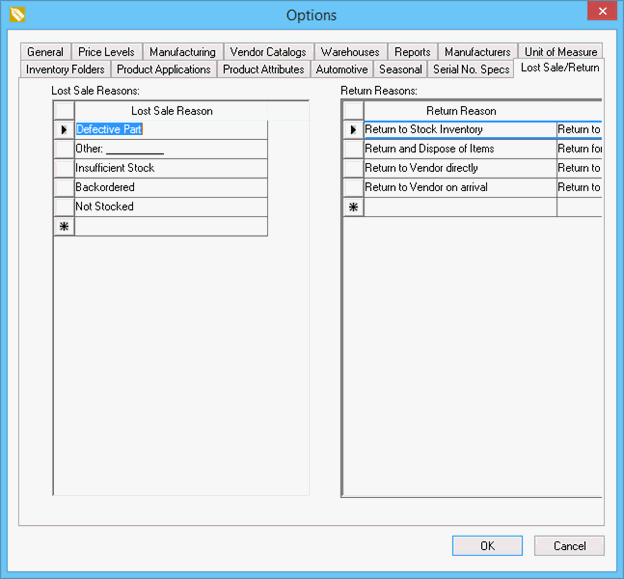
The lost sale feature within the EBMS software is a tool to conveniently record each time a sale is lost, the information regarding the lost sale, and the reason for losing the sale. This tools is very valuable when a large variety of parts or other inventory items are being sold. For example: the number of lost sales for a special order item may prompt a user to stock a specific part.
This tool records and summarizes information valuable to assist users in making informed inventory decisions such as stock levels and pricing.
The feature is conveniently located on the quote and sales order screens so that the product information such as customer, quantity, and pricing can be copied to the lost sale log file. The Lost Sale log information detail and summary can be viewed by selecting Lost Sale/Return tab if any inventory item record.
The user defined Lost Sale Reason list can be set by selecting Inventory > Options > Lost Sale/Return tab from the main EBMS menu as shown below:

Lost Sale Reason can be added or edited from this list. Right click and select Delete Row to delete a reason. Note that a Lost Sale Reason cannot be deleted after it is used within an inventory item.
Review the Product Return Reasons section for more details on the Return Reasons list shown on this dialog.
Click on the OK button to save the Lost Sale Reason list.
A lost sale can be recorded by right clicking on the inventory item ID anywhere within EBMS. This includes the Inventory Item Lookup list, inventory record, or anywhere an Inventory item entry is located. Open the sales order dialog by selecting Sales > Invoices and SOs from the main EBMS menu as shown below:
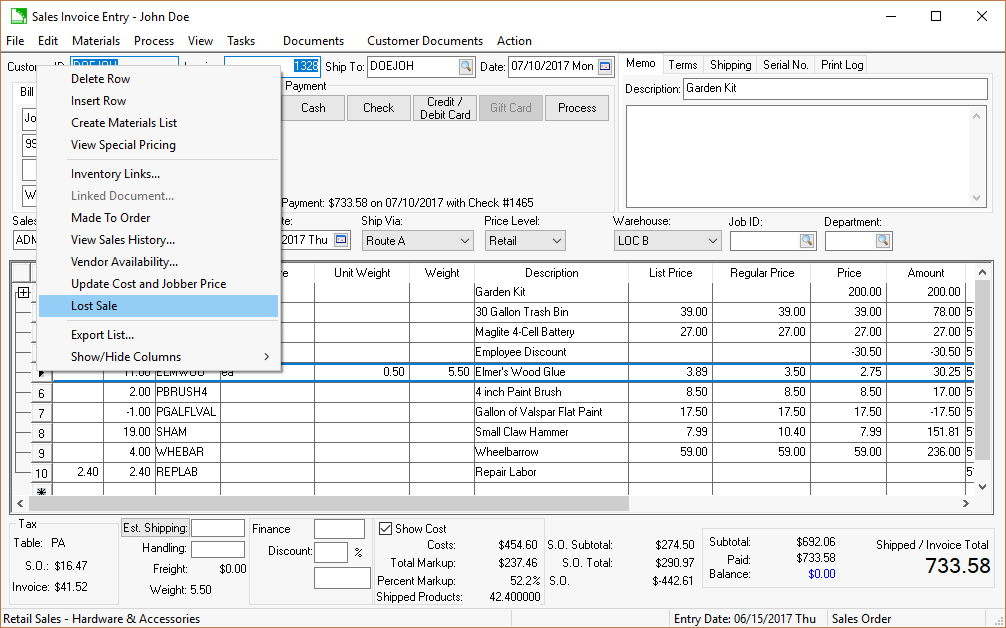
Right click on the sales order line that contains the sales that is being lost if the inventory item exists on the sales order or quote. The Lost Sale log process described below should be completed before the item is deleted from the sales order or quote. A lost sale log record can also be created without adding the item to the sales document by clicking on the inventory lookup list and right clicking on the inventory item and selecting Lost Sale from the context menu as shown below:
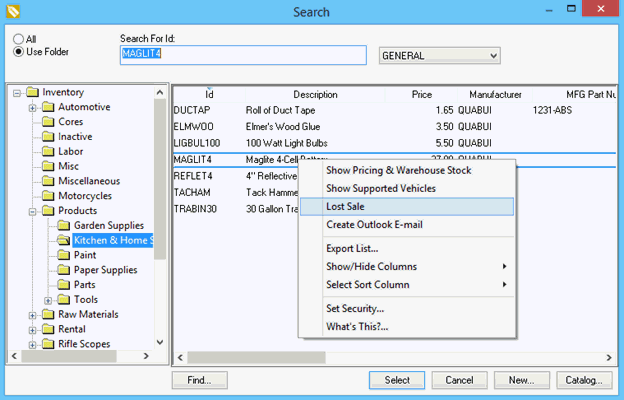
Complete the following steps to record the Lost Sale event:
Select the Lost Sale option from a context menu to open the following dialog:
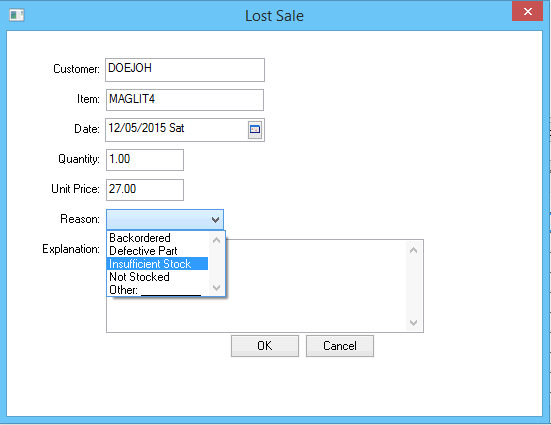
Enter the optional Customer ID to identify the customer that rejected the potential sale. This ID is copied from the sales order or proposal if the Lost Sale dialog was launched by clicking on the document detail line.
Enter the Date of the lost sale. This Date is used for reporting purposes when summarizing reasons by month or year within the Lost Sale log located on the Lost Sale/Return tab of the inventory item record.
Enter the Quantity of the customer's interest. The required Quantity entry is used to calculate the number of Lost Sales per month or per year.
The Unit Price is an optional entry for reference purposes. Select one of the user defined Reason settings recorded at Inventory > Options > Lost Sales/Return tab.
Enter an optional Explanation note and click on the OK button to record.
The results of the lost sale can be reviewed from the Lost Sale/Returns tab of the inventory item or by launching a Lost Sale report. Open an inventory item and click on the Lost Sale/Returns tab to open the following dialog:
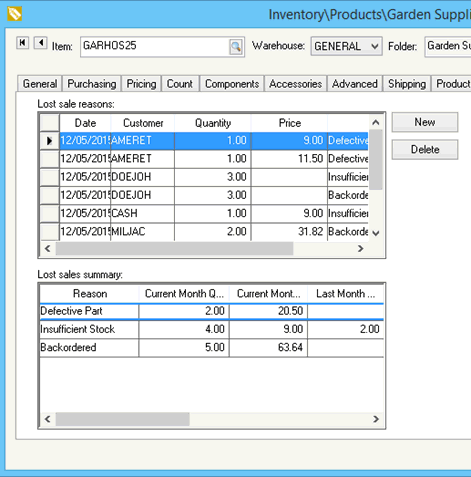
The top pane within this dialog list the detailed Lost Sale log. Click on the log columns to sort details based on log Date, Customer, Quantity, or Reason columns.
The bottom pane lists a summary of the Lost Sale Reasons for the Current Month, Last Month, or the Last Year.
This pane also lists the reason the item was returned. Review the Return Reasons section for more details on setting return reasons.